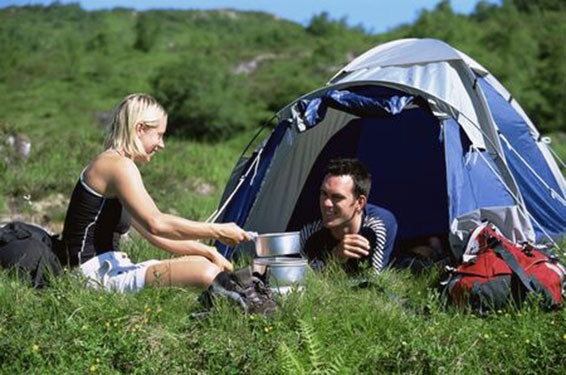
Nothing can ruin a good campout like a bad bug problem, so next time you go camping, be sure to pack these eco-friendly solutions. These do-it-yourself methods are cheap, simple, and won't harm you, your kids, or the environment.
Keep Wasps Away from Your Food
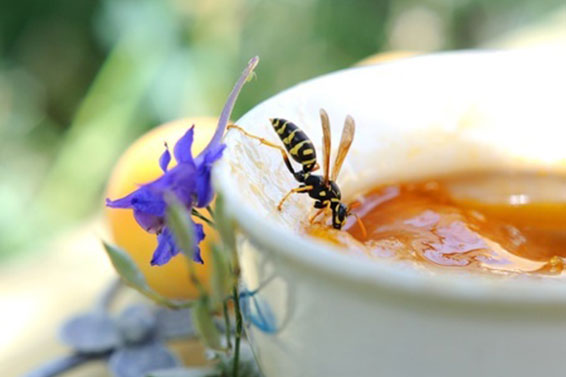
Wasps can be very aggressive, and they love your food, which makes them a problem for cooking and eating in your campsite. Luckily, there is an easy solution: a soda bottle wasp trap.
How It Works
Wasp traps are easy to make using an empty soda bottle. The bait inside the bottle lures them in, but then they can't figure out how to get back out. Wasps drown or die from the heat of the sun in the bottle. Sometimes traps attract wasps so well that they begin to fill up with wasps. This greatly reduces the number of wasps coming after your food and your drinks.
What you need:
- 2-liter soda bottle
- Scissors
- 2 cups apple cider vinegar
- 2 cups of sugar
- 1 cup of water
- ¼ - ½ cup liquid dish soap
How to Do it
- Using scissors, cut off the top third of the soda bottle.
- Mix apple cider vinegar, sugar, and water in the bottom section of the soda bottle. Stir vigorously and make sure the sugar is evenly dissolved.
- Add dish soap to the mixture, stirring gently to make sure dish soap doesn't bubble up too much.
- Flip the top section of the bottle upside down and insert it into the bottom section of the soda bottle until it rests securely.
- Set your trap at the edge of your campsite, close enough to your food that wasps that might have gone after your food will go for the trap instead, yet far enough from you that you won't get stung by wasps swarming around the trap.
- If there are a lot of wasps in the area, the trap may fill up, reducing its effectiveness. If this happens, fill the trap with water and let the wasps drown. Then empty the trap into a dumpster and re-bate the trap to catch more wasps.
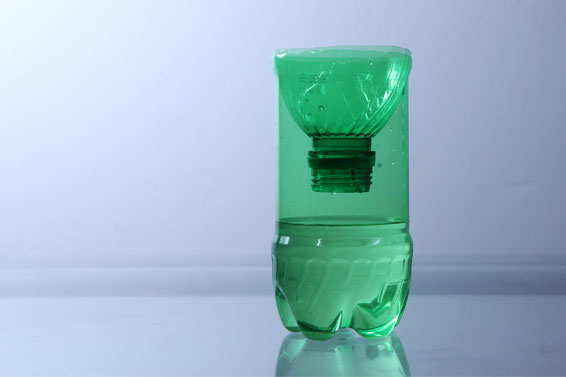
We got this recipe from SFGate.com. The sweetness of the sugar/vinegar mixture attracts wasps, and the dish soap acts as a degreaser which strips wasps of important oils, killing them faster, making this an effective way to bait your trap.
There are other ways to bait your trap as well. We've had good success by simply using apple cider vinegar. Others have baited traps with things like applesauce, soda, meat, and more. We highly recommend trying the recipe outlined above, but feel free to experiment with other baits as well. Just don't bait it with honey. This could attract bees, which we don't want to harm. Bees won't come after your food, and they are far less aggressive than wasps. They are also important pollinators.
Keep Ants Out of Your Tent
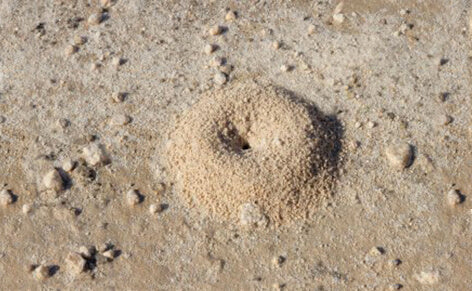
Diatomaceous earth has been used for years as an alternative insecticide. People use it successfully all the time for bed bugs, fleas, ants, and other pests around their homes. Adventurers are also catching on and using DE in their campsites to keep ants and other crawling insects out of their tents.
How It Works
Diatomaceous earth is chemical-free, making it much better for you and the environment than conventional insecticides. It kills bugs with its mechanical structure, not with poisons. At the microscopic level, DE is sharp and porous, making it highly absorbent. When insects walk through it, it sticks to them and sucks vital moisture away from their exoskeletons, and they die from dehydration.
What you need:
- Pest control grade DE (one without any added chemicals)
- A mason jar or similar container
- A sturdy knife
How to Do It
- With a knife, carefully punch holes in the lid of your jar or container. You will use this jar as a shaker to apply DE. You can also use a large spice shaker from your kitchen or order a DE shaker from us.
- Fill the jar with DE and secure lid.
- With your shaker, apply DE in a solid perimeter on the ground all the way around your tent. Be sure you apply it liberally in a line that is several inches thick. Any insects that try to cross this line will quickly be discouraged. It will keep ants, beetles, and other crawling insects from reaching your tent. It usually takes at least a few hours for DE to kill insects. So in this case, DE works better as a repellent than a pesticide.
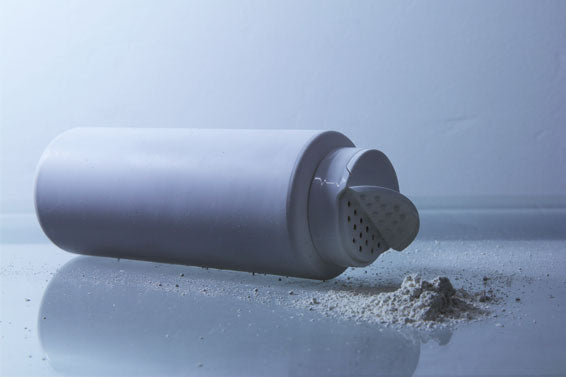
Your DE perimeter will remain effective as long as the DE stays dry and in place. If it gets wet, it loses its effectiveness, but don't worry. Once it dries out, it will work again. Apply more DE if your line gets washed or blown away.
To be extra sure ants and other bugs don't sneak into your tent, keep food and other aromatic substances out and away from your tent. This will have the added benefit of keeping other animals away from your tent, such as skunks, squirrels, and even bears.
Use Caution
Diatomaceous earth will not harm you or the wild animal and plant life. It will, however, be quite damaging to native insects if they roam through enough of it. For this reason, only use DE immediately around your tent. When you are packing up to go home, do your best to scoop up the remaining DE and throw it away. Any DE that remains will get rained into the soil and won't harm anything. Also, be sure to check the rules of the area you are camping in. National parks, for example, have strict rules about pesticides. Be sure to check with a park ranger or other authority before using DE in your campsite.
Keep Mosquitoes from Biting You
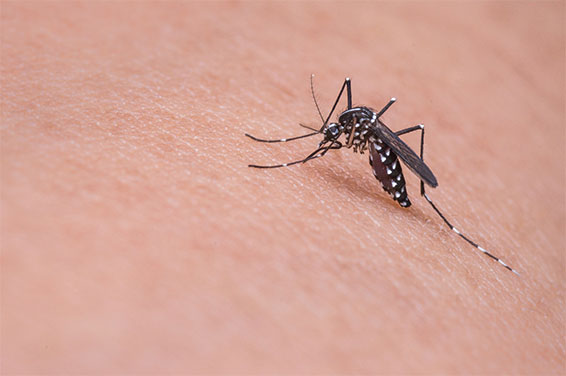
Mosquitoes present an extra challenge while camping for several reasons. First, there are so many of them. Second, unlike wasps, ants, and other insects that want your food, mosquitoes are after you! And third, many people have concocted all kinds of natural solutions, and so it's hard to tell what's going to work and what's not. So here are two common natural mosquito repellents that are considered by many people to be very effective: lemon eucalyptus oil and lavender oil.
How It Works
It's pretty simple, really. Mosquitoes just don't like these oils, so when you put them on your skin they won't like you either. It's a much safer alternative to using repellents containing DEET and other harmful chemicals. And for humans, these oils smell much better than most mainstream bug sprays.
What you need:
- ½ tsp. lemon eucalyptus or lavender oil
- 1 cup of water
- Spray bottle
How to Do It
- Mix your choice of oil in water.
- Pour mixture into the spray bottle.
- Apply to your skin as you would with any other spray-on repellent.
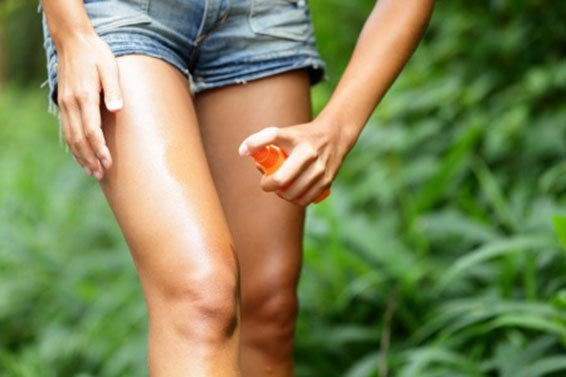
As we mentioned before, there are all kinds of bug spray recipes out there, and there are other ingredients you can add to this one. Go ahead and do some research, experiment, and see what works best for you!


